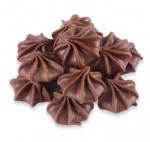I’ve read several articles lately on how we writers get carried away and go off track. But it’s hard not to reveal the humanity of our characters and their families. It’s hard to not tell the history of the small town when we set our scenes. After all, every person or place is rich with anecdotal detail. But sometimes we include so much that we lose track of the story itself. We have buried it in fat.
 We need to ask ourselves – Does the reader have to know that the hero’s Great Aunt Gladys used to hoard chocolate candy stars under her bed? Or the funny incident when his girlfriend ended up with a black eye? Sure, they are great stories, but if we didn’t know them would it affect anything? Have we taken our reader off the path?
We need to ask ourselves – Does the reader have to know that the hero’s Great Aunt Gladys used to hoard chocolate candy stars under her bed? Or the funny incident when his girlfriend ended up with a black eye? Sure, they are great stories, but if we didn’t know them would it affect anything? Have we taken our reader off the path?
But wouldn’t a story be dry without SOME personalization?
Recently someone brought a bag of artificial sweetener into our office. I was reading a recipe on the side of it, wondering if I should try it. But wait! There was an unexpected ingredient. A small amount of…Sugar! The information on the bag went on to explain that the sweetener couldn’t replace all the sugar, because that would affect the texture and the way the item browned and looked. Who knew?
And those fat-free diets? Look again. Dieticians tell us we DO need fat in our diets. It’s crucial to our digestion and our organs. We just shouldn’t over-do.
Well, our stories are much the same way. We do need some of those extras, to make our stories seem real and insert a touch of familiarity (yeah… I can relate to Aunt Gladys. I hoarded those chocolates, too – in my underwear drawer – when I was a kid). Just not too many.
Sometimes a reader needs to know what happened in order to understand why the character acts/reacts the way he does later. Sometimes you can use an incident as a reference for a phrase or action that is used later in the book. Remember Anton Checkhov’s quotation – “If you say in the first chapter that there is a rifle hanging on the wall, in the second or third chapter it absolutely must go off. If it’s not going to be fired, it shouldn’t be hanging there.” ?
So tell Gladys’s story. Work it in by using the hiding place as something your hero remembers and needs as his enemies are closing in. You can find a way to keep a little of the fat and still drive the story forward-







Recent Comments